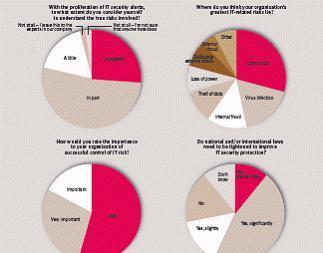Some European countries have already seen legislative changes designed to facilitate the bringing of group actions in some cases. How do StrategicRISK Benchmarking Club correspondents view class actions and their possible impact?
Sue Copeman describes the results of our latest survey
Most - 92% of respondents - believed that an increasing number of European countries allowing class actions would increase the potential cost of risk; indeed 50% of respondents felt that this would have a very marked effect.
And the vehemence of their views is demonstrated in their comments:
• "This will be a financial bonanza to certain lawyers, resulting in increased litigation. My employer has a major US presence and I have closely witnessed the effects of class action litigation. This is bad news for European businesses."
• "It will reduce service levels and increase the need for mitigation strategies as suppliers and manufacturers try to protect themselves. Ultimately the cost of risk will be charged back to consumers."
• "Permitting class action litigation will increase the overall cost of risk. The level of increase will depend, among other factors, on any subsequent change in fee structure for legal representation."
• "The importance of getting it right will soar - meaning that the cost of ensuring procedures are followed will rise."
• "I expect that insurers will introduce exclusions to certain defence costs reimbursement clauses in D&O policies."
• "There will be higher pressure on the settlement side - with an impact also on products cost and legal expenses."
• "Increased cost of insurance, more litigious society like in the US - who wants this besides the lawyers?"
• "Mass action always contributes to risk."
Over half the respondents (53%) felt that employer's liability would be the area with the greatest potential vulnerability to a class action for their organisations, although environmental liability, at 47%, came a close second.
Comments included:
• "I firmly believe that our market vulnerability is affected in all aspects and for all liability classes. This can only be emphasised by the new laws regulating the regulators, the environmental laws, the attempts by all EU governments to remedy the errors of the past ... and the resulting ongoing evolutionary laws on products, the protection of the consumers, the protection of the individual, reinforcing the parameters of corporate responsibility of individuals such as directors, board members."
• "The lawyers have an insatiable appetite for business, and are very inventive. The judges are lawyers who collude with them. Insurance pays for the lot."
• "Ground water pollution or land pollution from tank farms could have a serious impact on industries involved."
• "... it potentially attracts more claimants (the bandwagon effect)."
Our next question asked whether respondents' organisations had experienced in the past five years any groups of individual claims which could, if permitted by national law, have resulted in a class action. Over 50% said that they had not, 11% did not know, but over a third admitted that they had. The claims involved quite a wide range of areas, so there was no real consensus although 11% referred to defective products and just under this number mentioned accidents resulting in injuries or fatalities.
Seventeen per cent of respondents' organisations had already had firsthand experience of class actions, having been subject to these in the US. These US class actions had involved professional negligence, accidents resulting in injury or fatalities; asbestosis; defective products and discrimination.
Over three-quarters had not had class actions against them in the US, but this fairly high proportion needs to be balanced against the fact that many of these organisations did not have US exposures.
With significant criticism of the US Plaintiff Bar and justice system emerging in the answers to the first few questions, we asked respondents whether they considered that it would be possible to introduce class action systems into European legal systems without the excesses and abuse widely reckoned to be prevalent in the US. Our respondents were divided. Six per cent thought there was an excellent possibility and 47%, a reasonable one. However, 42% felt the chances were slim to none (the remaining six per cent did not know).
Some respondents expanded on their answers:
• "This will depend on the 'culture' from which courts and lawyers come and their attitudes to social responsibility. It also depends on fees and remuneration - if that can be controlled or reigned in, maybe some of the excesses can be curtailed."
• "I don't see how excesses and abuses would be limited in the different European projects. I don't even know if anyone cares about it."
• "So many corporations operate worldwide it would be difficult to hold back the excesses."
"European culture's difference from the US culture might delay the excesses of the US system."
• "Reasonable if fee structures do not change significantly (along with potential damages)."
• "Would promote a whole new army of solicitors promoting class actions."
If no-one much likes the US system, does it actually act as a disincentive, for example in respect of mergers and acquisitions relating to US companies? The answer was clearly affirmative: 19% thought this was very much the case and 64% thought that it acted as a disincentive to US M&A deals to a modest extent. Two pertinent comments here were:
• "In the light of recent corporate developments in US courts, I feel that several European corporate entities reluctantly consider the US for investments or other long term commitments."
• "Cannot generalise - depends very much on the products/services being invested in. Due diligence should highlight these risks in any case."
The ability to bring class actions in Europe could have some beneficial effects. Fifty three per cent of respondents felt that it would marginally improve product safety, and 13% felt that it would improve it significantly. However, 34% considered that it would have no effect. Comments here included the following:
• "Product safety is not a key issue in consumers' minds."
• "It would make people focus on responsibility rather than on safety."
• "We would go down the same silly route as the USA by placing ridiculous restrictive conditions and terms of use on goods and services."
Respondents were also largely agreed that a class action against their organisation would cause greater reputation damage than a series of individual claims.
Opinion was divided as to the extent that Europe has developed a US-style 'compensation culture', but some respondents thought that the UK and France had gone furthest in this direction.
Sue Copeman is editor, StrategicRISK



















